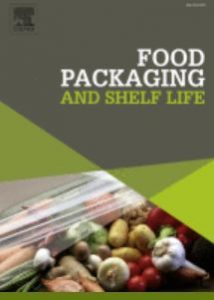Research from Agrimax partners Fraunhofer and IRTA has featured in the open-access Food Packaging and Shelf Life journal.
Read the article: ‘Combination of ferulic acid with Aloe vera gel or alginate coatings for shelf-life prolongation of fresh-cut apples.‘
- • Edible coatings based on alginate and aloe vera gel were applied to fresh-cut apple discs.
- • Ferulic acid (FA) was added as an antioxidant, which delayed browning up to 7 days.
- • Aloe vera gel increased the antioxidant properties of the samples.
- • FA and alginate reduced inoculated Listeria monocytogenes population after 7 days.

Around one-third of all food produced each year is wasted and a significant proportion of this is at the field and food processing levels. In Europe, around 90 million tonnes of food and 700 million tonnes of crop are wasted every year. The EU-funded Agrimax project is addressing this problem by developing novel processing plants – biorefineries- that will convert residues and by-products from crop and food processing waste into a range of innovative biobased products for the food-packaging, chemical and agricultural sectors.

No Comments